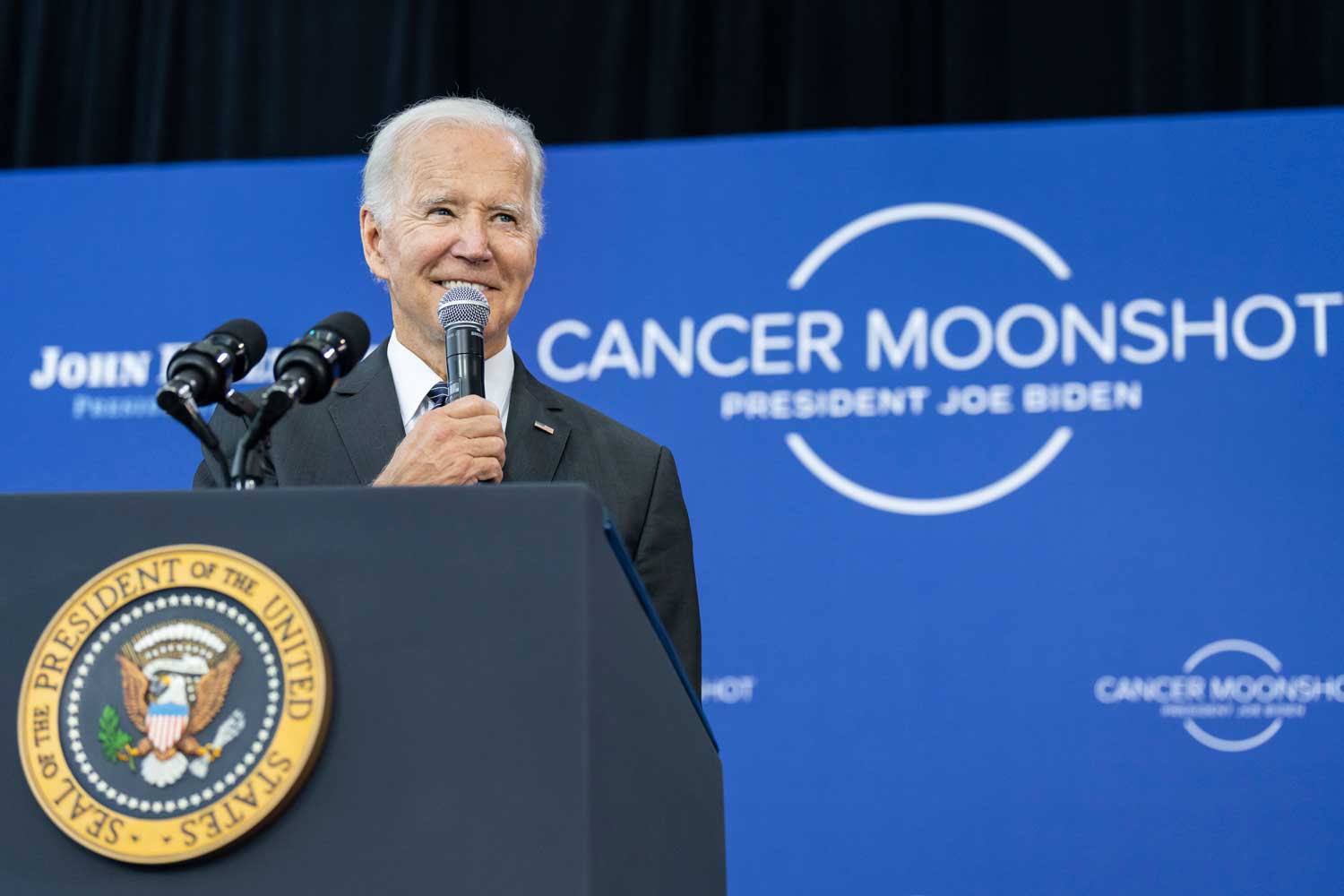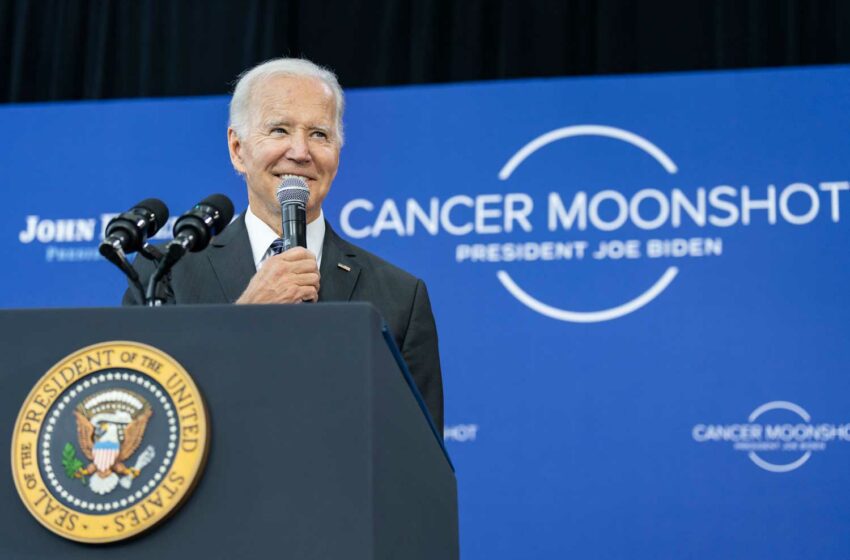
The White House on Sept. 13 announced a $240 million investment to fight cancer, along with a slew of new health resources to further the administration’s “Cancer Moonshot” initiative.
The announcements from the Biden Cancer Moonshot include:
- New investments to reduce the impact of menthol and other flavored commercial tobacco products in communities that experience health disparities
- A new plan to decrease the impact of smoking on Americans’ health by expanding efforts to prevent smoking and to support everyone who wants to quit. To ensure Americans who want to quit have the support they need, the Department of Health and Human Services will finalize its Framework to Support and Accelerate Smoking Cessation this year.
- New smoking cessation resources for underserved communities, including American Indian, Alaska Native and Black communities, to reduce cancer health disparities.
- A new pilot program to increase veteran engagement in tobacco use treatment. The Department of Veterans Affairs, in collaboration with the National Cancer Institute, will conduct a clinical demonstration project to assess how to more effectively engage veterans in tobacco-use treatment programs.
- New resources and actions to reduce exposures to environmental carcinogens. The Environmental Protection Agency (EPA) is launching gov/cancer, with new information and prominently featured resources from EPA and other federal agencies about secondhand smoke, smoking cessation and other cancer-related topics.
Tobacco harm reduction activist have been urging Biden administration to embrace less harmful alternatives in its Cancer Moonshot initiative. “If President Biden is serious about beating cancer, then embracing tobacco harm reduction is not just an option, it’s a necessity,” said Michael Landl, director of the World Vapers Alliance (WVA), in a statement.
Landl pointed to the examples of Sweden and the United Kingdom, which he said have proven the effectiveness of vaping and other less harmful products in reducing smoking rates. “Instead of fighting less harmful alternatives, the Biden Administration needs to embrace vaping as a smoking cessation aid,” he said.
The investments in programs aiming to reduce smoking among marginalized groups would be more impactful if they included harm-reducing alternatives, according to Landl.
“To achieve the desired outcomes in cutting cancer-related deaths, it’s imperative that the United States foster a comprehensive harm reduction strategy that acknowledges vaping’s potential to save lives. Many smokers fail to quit, so to beat cancer we need to get real about that and encourage the use of less harmful alternatives such as vaping,” he said.
The WVA urged the Biden administration to develop an inclusive strategy that incorporates a range of less harmful alternatives to smoking. “Flavor bans, high taxation on safer nicotine products and the overly bureaucratic FDA approval process must end immediately,” said Landl.

